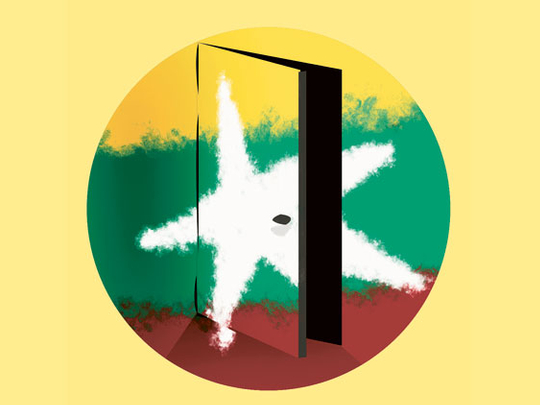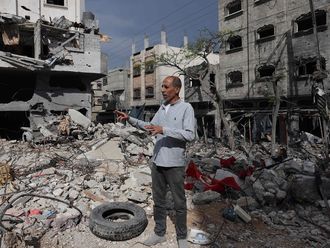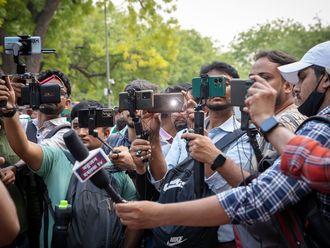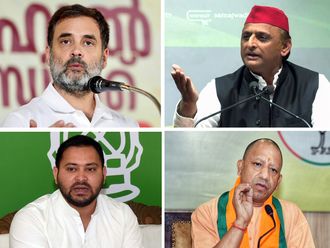
US Secretary of State Hillary Clinton's recent visit to Myanmar, noted largely for a memorable photo opportunity with a wan but smiling Aung San Suu Kyi, signalled a significant change in the geopolitics surrounding a land that has faced decades of isolation, sanctions, and widespread condemnation for human rights violations.
Twenty-one years ago, after Suu Kyi's National League for Democracy (NLD) swept a general election, the results were annulled, the party's leaders and workers were incarcerated or exiled, and two decades of ruthless — and remarkably opaque — military rule followed.
This year has witnessed political opening, the release of several prominent political prisoners, and evidence of self-assertion by the nominally civilian government (headed by a former general, Thien Sein). Suu Kyi's announcement of her intention to contest a by-election to the new parliament offers a glimmer of hope that democrats could use the fledgling political process to create something resembling genuine representative government.
Myanmar's military rulers are cynically hoping to use Suu Kyi's participation in the parliamentary process to bolster the illusion of freedom while continuing to exercise real control. But such exercises in ‘managed democratisation' — in places as different as Iran, Indonesia, and the Soviet Union — have often surprised their would-be manipulators.
It is clearly in the interests of both India and the US to seize this opportunity. While China has always been comfortable dealing with a military regime, India's embrace of the junta has been more reluctant, based on reasons of geography rather than shared ideals.
Tangible support
For many years, India was unambiguously on the side of democracy, freedom, and human rights in Myanmar. It offered asylum to fleeing students, allowed them to operate their resistance movement within India (with some financial help), and supported a pro-democratic newspaper and a radio station.
Then reality intruded. India's strategic rivals, China and Pakistan, began to cultivate the Myanmarese generals. Major economic and geopolitical concessions were offered to both suitors.
Four of India's politically sensitive northeastern states have international borders with Myanmar. But the key development was the discovery of large natural gas deposits in Myanmar, which would not be available to an India deemed hostile to the regime. The price of pursuing a moral foreign policy became too high.
So India turned 180 degrees. The increasingly forlorn resistance operations based on Indian territory were shut down. And India sweetened the generals' tea by providing both military assistance and intelligence support in their never-ending battles against their own rebels.
India had gone from standing up for democracy to aiding and enabling the military regime.
Yet, paradoxically, Myanmar's gradual opening following the 2011 elections and the installation of Sein as president may offer India some measure of vindication. Countries like India that had maintained links with the junta and gently prized open its clenched fist may well have achieved more than those whose threats, bluster, and sanctions had merely hardened the generals' stance.
In cancelling a $3.6 billion Myitsone hydro-electric project (90 per cent of whose electricity would have been exported to China), the Myanmar government surprised most observers. But the signal is clear: Myanmar is not a Chinese vassal state, and is willing to diversify its foreign relations.
It is in Myanmar's interests to have more than one suitor wooing it; offsetting one neighbour against another is a time-honoured diplomatic practice. Though China's engagement dwarfs India's, India is now Myanmar's fourth-largest trading partner, after Thailand, Singapore, and China, accounting for 70 per cent of the country's agricultural exports.
Economics can always open political doors. "That Myanmar could defy the Chinese," wrote Indian scholar Sreeram Chaulia, "is being seen as a sign that political space exists for the US to work as a facilitator of the democratisation process in Myanmar." Clinton's visit brought confirmation that India has been playing a quiet but effective role in promoting greater engagement with the Myanmarese.
India cannot and should not seek to outdo China in appeasing the junta. Its natural instincts lie with the Myanmar democrats, Suu Kyi, and the former students for whom it has, over the years, shown its support.
With the US signalling its willingness to take Sein's political openness at face value, the stage is set for the region's democracies, especially India, to open Myanmar's windows to the world. China will be watching closely.
— Project Syndicate, 2011
Shashi Tharoor, a former UN under-secretary general and minister, is a member of Indian parliament and an author.


_resources1_16a31070c2f_small.jpg)






